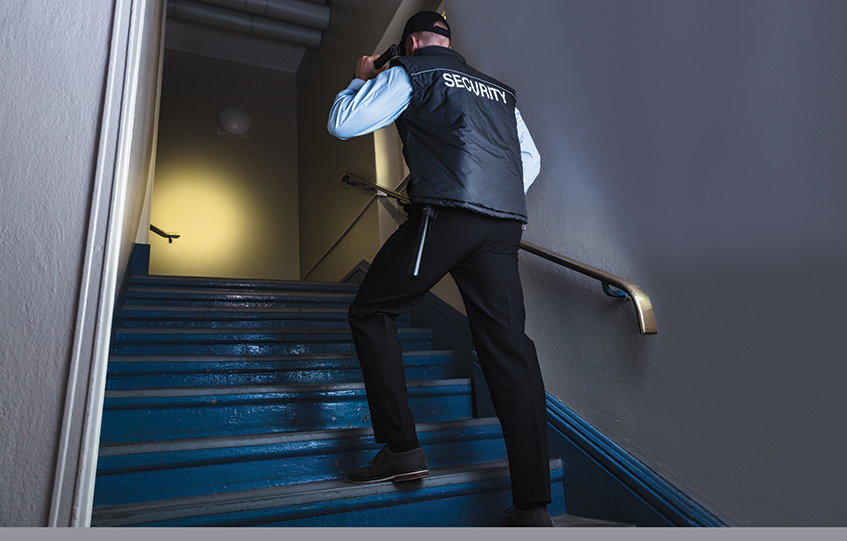Property professionals would rather not have to spend time planning for a terrorist attack or civil unrest, but it’s important to have strategies in place to minimise the risks. David Thame reports
Five months since the terrorist attack on Manchester Arena, the city looks and feels much like it always did – apart from tens of thousands of proud new bee tattoos (the bee being Manchester’s industrious mascot).
While the city is getting back to normal, the attack has renewed the focus on resilience for Manchester’s property businesses – as it has in other cities, too.
No one likes to think of the worst-case scenario – but in the face of the growing challenges of terrorism, security and social disorder there are lessons to learn.
Developers on at least two major Manchester city centre office schemes are reviewing plans to include tracking technology in their buildings that will electronically map users and visitors.
City landlords have also been offered advice from a panel of experts, including DCS Dominic Scally of the North West Counter Terrorism Unit.
Recognition software
Norman Blight, associate and security specialist at Cushman & Wakefield, says recognition software is now opening up new possibilities, particularly for access control.
“You have businesses such as Genetec operating systems that can search hours of CCTV footage for small items – a single piece of clothing, for example – and that is massively helpful,” he says.
However, Blight’s advice is that a landlord’s time and money is often better spent updating plans, training staff, and keeping in touch with tenants and the authorities. “It might also be useful to make sure your office building has a room for the building manager – that helps enormously. It’s as basic as that,” he adds.
David Porter, head of the Manchester office at Knight Frank, says: “We have always had occupiers who took a strong view on resilience. “Developers are building resilience into city office blocks by including two or three separate data and power entry points in case one goes down. Powerful back-up generators are also popular.”
Think landscape
Landlords and developers looking for a hard-fix for terrorist threats might look to landscape, according to specialist academic Paul O’Hare.
He says: “Nobody wants to build fortresses, but you can design stand-off areas around buildings that can really enhance the environment and contribute to an improved public realm. It’s possible to create secured areas – as they have outside the Treasury building in Whitehall, SW1, by using street furniture in innovative ways.”
Riot – communication is key
Although the last big riots were in 2011 (in Croydon and Manchester), smaller riots happen more often than you think: this summer there were riots in Dalston, E8, and the Southmead area of Bristol.
Demonstrations with the potential for violence are more common: in June, extreme right-wing groups marched in Manchester, prompting a 400-strong police presence amid fears of violence.
Vaughan Allen, chief executive at CityCo, the city centre management company for Manchester and Salford, says the best protection is good information.
“Manchester property has already learned the biggest lesson, which is to co-ordinate your communications message so that information is accurate and up to date.
“On the night of the 2011 riot I was wandering around trying to contradict rumours. There were claims Primark was burned out – but I could tweet a picture showing it wasn’t.”
A landlord’s job is to maintain regular and accurate plans, and share them with tenants, Allen says. “Keeping occupiers constantly briefed is much better than throwing money at security guards. This may feel like a problem for London and Manchester, but it would be foolish if landlords in smaller cities did not start to plan.”
Use of Spice, the artificial cannabinoid labelled “the zombie drug”, has become epidemic in some regional cities such as Nottingham, Manchester and Newcastle – even in smaller centres such as Lincoln – adding to the problem of rough sleepers.
Rough sleepers
Shelter says there are about 3,000 rough sleepers in Greater Manchester, but past methods for dealing with the problem have understandably proved controversial.
Metal spikes placed on flat surfaces outside Ardstone’s Capital’s Pall Mall Court, Marsden Street, caused political outrage earlier this year and were removed. Manchester’s Selfridges store installed and then removed similar anti-rough sleeping devices in 2015.
Alex Russell, managing director at Property Alliance Group, says: “On any scheme, work closely with the police, listen to them, take their advice on how to deal with homelessness.”
Cityco’s Vaughan Allen agrees. “The Marsden Street episode shows landlords should make physical changes cautiously. Dealing with Spice can be difficult but uncomfortable street furniture and deterrent paving is utterly the wrong direction, and usually a PR disaster.”
 Uniform solutions
Uniform solutions
If trouble is brewing, many landlords’ first reflex will be to send for security guards. The consensus among the experts is: don’t.
Norman Blight, associate in asset services at Cushman & Wakefield, comes from a police and military background: few people in property know as much about security, and his advice is to avoid buying uniformed security if you can. “You are looking at £75,000 to £100,000 a year for 24-hour cover, and frankly you get what you pay for. It’s not cheap – and while it might deter an opportunistic thief, it is not going to deter a terrorist.”
Greg Lacey, investment manager at Commercial Estates Group, presides over the £2.5m refurbishment of the 48,000 sq ft block at 196 Deansgate, Manchester. “We are in a city centre – there are people all around us all the time – the building isn’t isolated or on its own, so the 24-hour security presence isn’t necessary,” he says.











